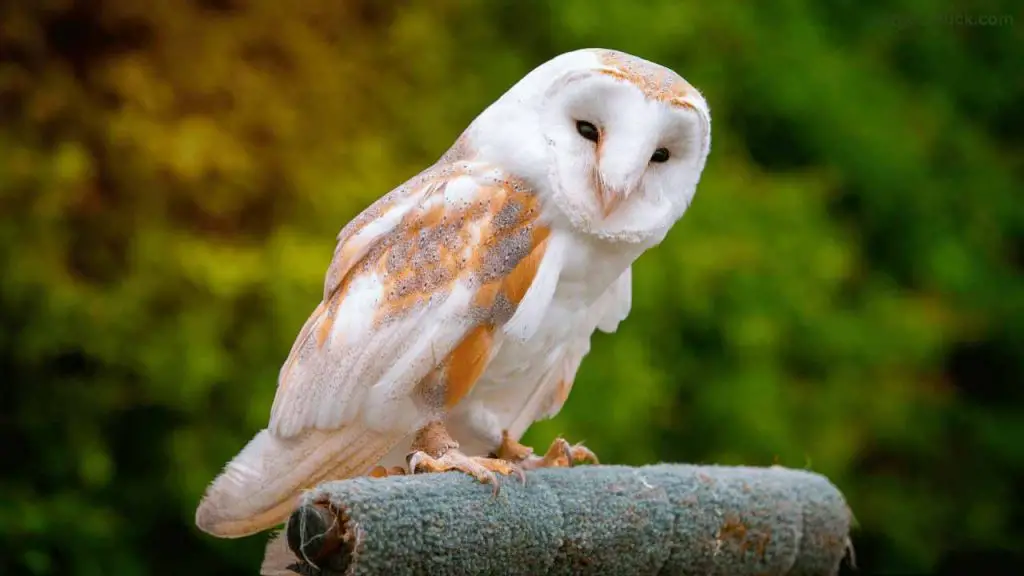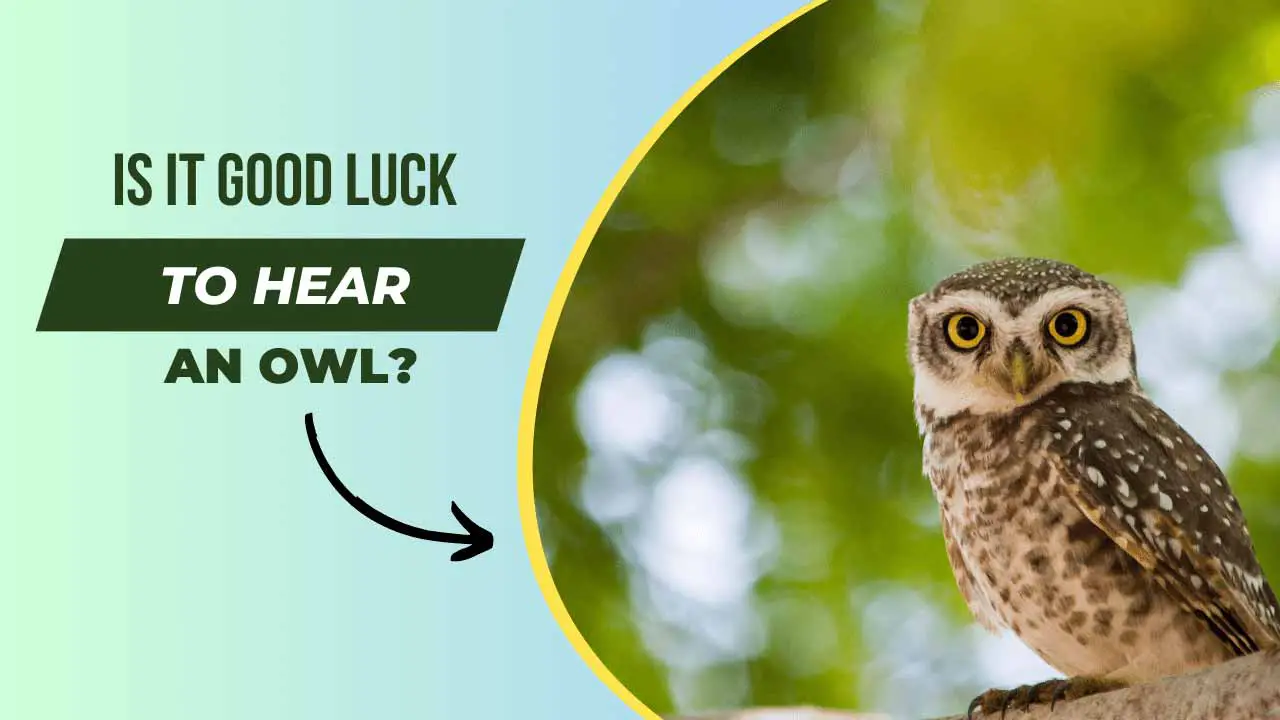Owls, these intriguing creatures of the night, are universally acknowledged for their mystery and majesty.
Known for their distinctive calls, they’ve sparked many human sentiments since immemorial. They’ve been symbols of wisdom and knowledge, yet, simultaneously, they are often linked with darkness, death, and inauspicious tidings.
The central theme of our discussion today pivots around the diverse cultural interpretations of hearing an owl and whether it’s considered good luck.
Contents
- 1 Delving into the Symbolism: Cultural Meanings of Owls
- 2 A Hoot in the Night: Is it Good Luck to Hear an Owl?
- 3 Decoding the Nocturnal Calls: The Sounds of Owls
- 4 Conclusion:
- 5 FAQs
- 5.1 Why are owls considered bad luck in some cultures?
- 5.2 Why are owls seen as a symbol of wisdom?
- 5.3 Can the type of owl affect whether it’s considered good or bad luck to hear it?
- 5.4 Is finding an owl feather good or bad luck?
- 5.5 Does the time of day I hear an owl affect whether it’s good or bad luck?
Delving into the Symbolism: Cultural Meanings of Owls
Owls carry profound symbolism, although the interpretation varies widely across cultures.
In Western cultures, the owl, known for its sharp sight even in the darkest nights, represents wisdom and intelligence.
This connection dates back to Ancient Greece, where the owl was considered sacred to Athena, the Greek goddess of wisdom.
Conversely, in some Native American cultures, owls are seen as ominous, signaling death or misfortune.
However, not all tribes perceive them negatively. The Hopi tribe, for instance, regards owls as protective spirits, and their feathers are used in many rituals.
Also read: Is it Good Luck to See an Owl?
A Hoot in the Night: Is it Good Luck to Hear an Owl?
The cultural backdrop heavily influences the meaning behind hearing an owl hoot at night.
In Western cultures, hearing an owl is often perceived as an ill omen, likely because owls are nocturnal creatures associated with night’s quiet and eerie darkness.

This association can incite feelings of unease and fear, causing them to be seen as harbingers of bad luck.
On the contrary, hearing an owl is considered auspicious in Eastern cultures. Owls are linked with the moon, a celestial body often associated with fortune and prosperity in these cultures.
In this context, the owl symbolizes protection and guidance, making its hoot a welcome sound.
Decoding the Nocturnal Calls: The Sounds of Owls
Each owl’s sound carries a specific purpose, making their calls a fascinating study subject.
The hoot is the most distinctive and recognized owl sound. It is used for various purposes, such as communication, mating rituals, and territorial defenses.
Owls also emit other sounds like screams, screeches, and whistles. These are generally used to communicate with their kind but can also deter potential predators.
Conclusion:
Owls and their sounds hold a significant place in various cultures worldwide. Depending on one’s cultural beliefs and personal interpretations, they could be considered omens of good luck or evil.
Thus, whether it’s good luck to hear an owl is highly subjective and varies from person to person.
Lastly, here are some fascinating owl facts for curious minds:
- The world is home to more than 200 different species of owls.
- An owl can turn its head 180 degrees, a feature unique to this bird.
- Owls have highly developed senses of hearing and vision, allowing them to be successful hunters even in the dark.
- As apex predators, owls are crucial in controlling rodent and small animal populations, maintaining a balanced ecosystem.
Also read other articles regarding birds good luck
FAQs
Why are owls considered bad luck in some cultures?
In some cultures, owls are often associated with bad luck due to their nocturnal nature and eerie calls, which can incite fear or unease. Moreover, because they’re commonly found in dark, quiet, and isolated places, they have become associated with death and the afterlife in some folklore and superstitions.
Why are owls seen as a symbol of wisdom?
The association of owls with wisdom dates back to Ancient Greece, where the owl symbolized Athena, the goddess of wisdom and warfare. The owl’s ability to see in the dark and their silent yet efficient hunting skills represent intuitive knowledge and inner wisdom in various cultures.
Can the type of owl affect whether it’s considered good or bad luck to hear it?
Yes, the type of owl can influence whether it’s good or bad luck to hear it. Different owl species have other calls and may have different cultural meanings. For instance, hearing a screech owl in some cultures is considered particularly ominous.
Is finding an owl feather good or bad luck?
Like hearing an owl, the luck of finding an owl feather can vary depending on cultural and personal beliefs. In some Native American cultures, owl feathers are considered sacred and used in various rituals, suggesting positive connotations. However, in other cultures, an owl feather might be seen as a symbol of death, thus considered bad luck.
Does the time of day I hear an owl affect whether it’s good or bad luck?
The time of day might influence how people interpret hearing an owl based on their cultural beliefs. Since owls are primarily nocturnal creatures, hearing them at night might be seen as more significant or ominous in cultures associated with death or misfortune. However, in cultures where owls are seen as protectors or symbols of good luck, hearing them at any time could be interpreted positively.





